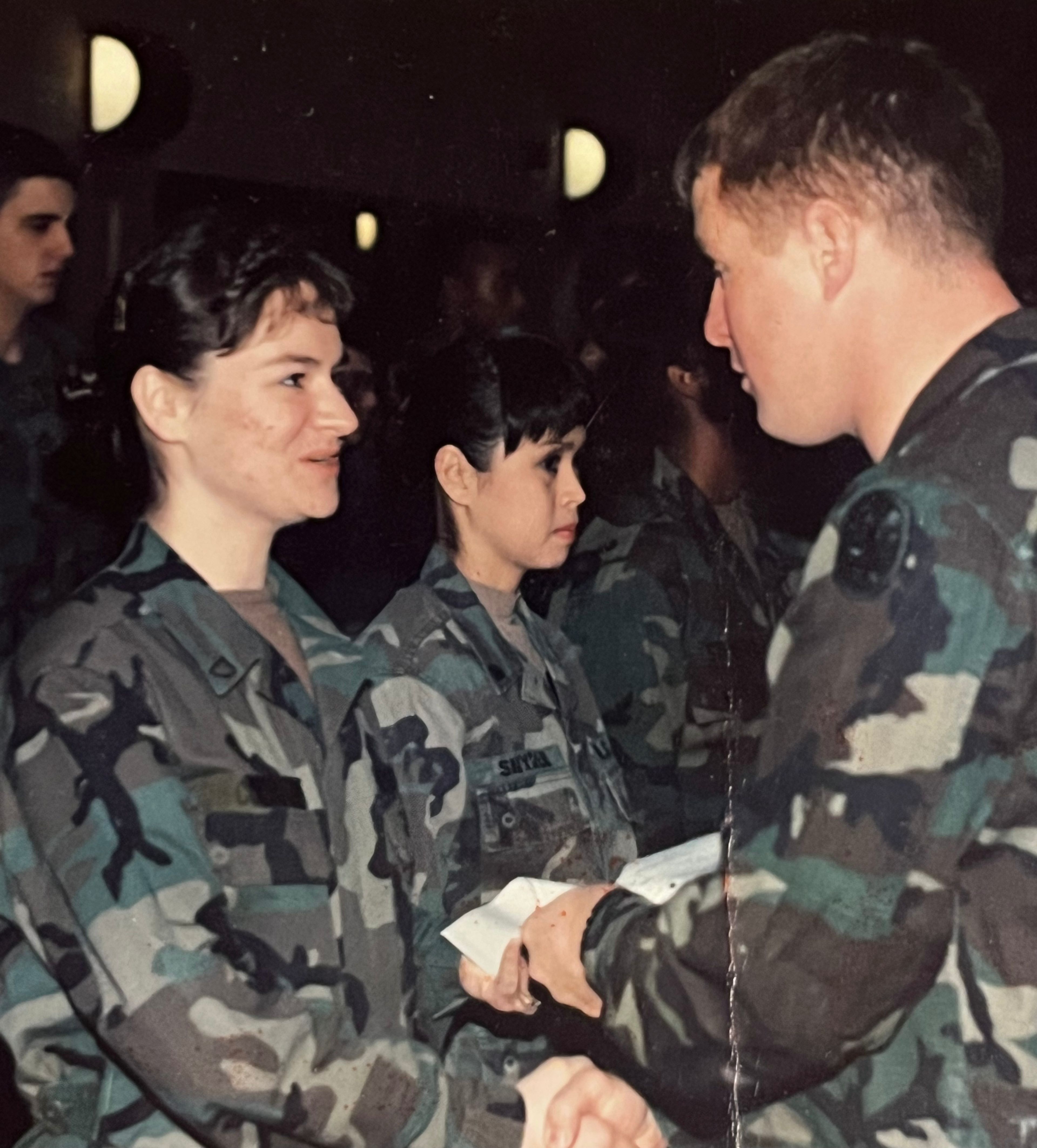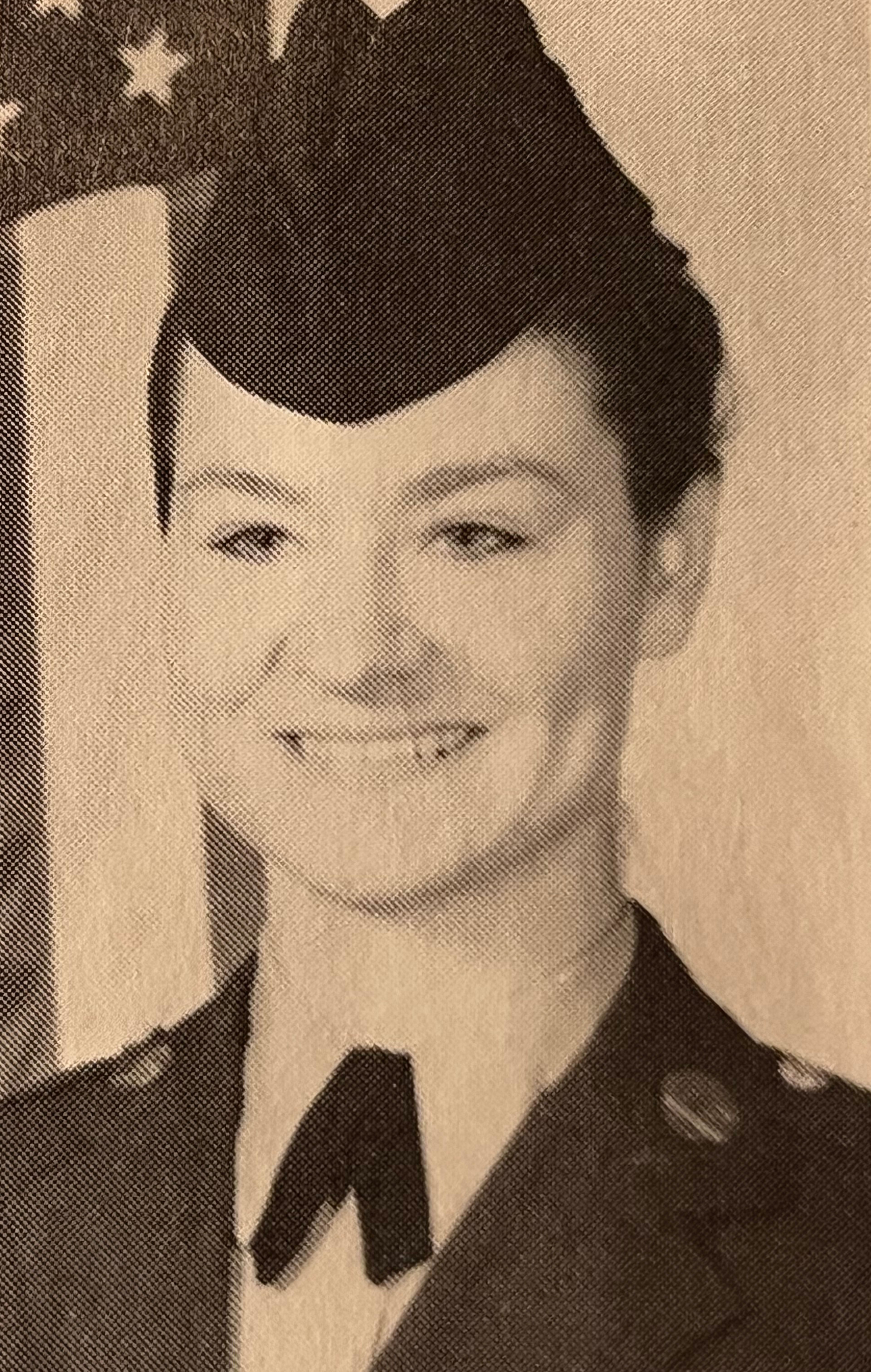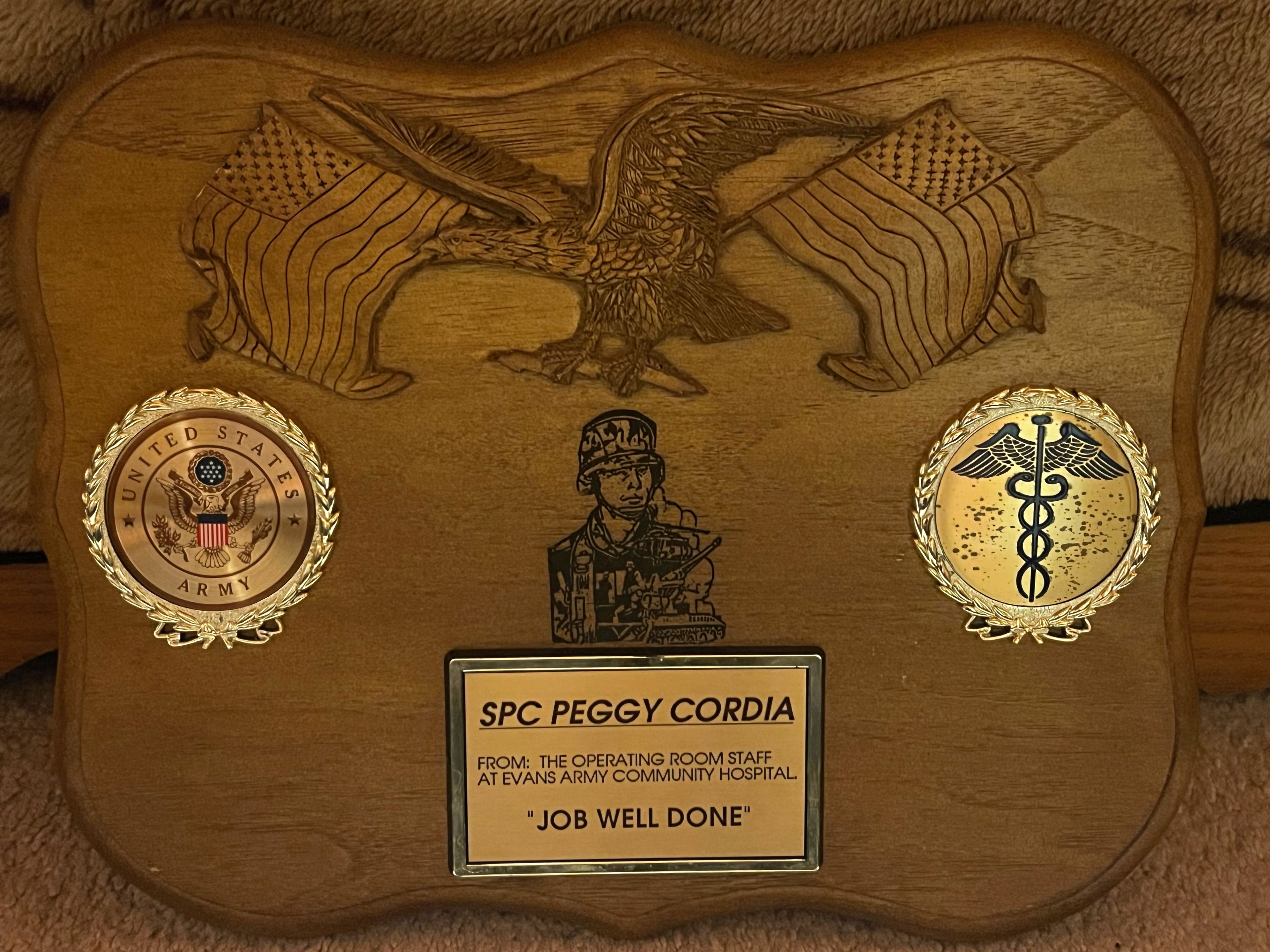Salute to veterans 2024: Peggy Stieneke's journey of service and resilience
Peggy Stieneke's journey from Army medic to educator highlights resilience and dedication. Despite challenges during her service, she transitioned to a fulfilling career in education, impacting young lives.
After her older brother was honorably discharged from the military due to a heart condition, Peggy Stieneke, originally Peggy Cordia, decided to join the armed forces herself.
Stieneke, who has worked with Cape Girardeau Public Schools for the past 24 years, ultimately signed on to serve in the U.S. Army as a high school senior in 1989. After graduating from Oak Ridge High School in 1990, she underwent basic training and began her two-year stint as an active-duty soldier.
While undergoing her advanced individual training (AIT), Stieneke and her battalion were informed they would likely be deployed to the Middle East to fight in the Gulf War. As a combat medic, Stieneke would have been in the front lines fighting and taking care of other soldiers who became wounded.
Although Stieneke didn’t deploy, she said she was prepared for it.
“My battalion was ready to get on the bus to be shipped over to Desert Storm, but we weren't sent,” Stieneke said. “Even though I didn't get combat experience, I was ready. We were trained, and we were ready.”
During her senior year of high school, Stieneke was in the Army’s delayed entry program where she attended weekend meetings and trained in preparation for basic training. After completing AIT, Stieneke was stationed in Colorado Springs, Colorado, where she worked as a paraprofessional and later as an operating room communications coordinator for the Evans Army Community Hospital at Fort Carson.
“I loved that job because in the hospital that I worked at, everyone that I worked with, they were so respectful and they were very helpful,” Stieneke said. “I had majors and one-star generals to kind of have my back and just show me respect even though I had no gold on my sleeve or my collar. They respected me. They took my opinion like it was worth something.”
Not all of Stieneke’s experience in the military was positive, however, as she recalled being sexually harassed by a male soldier while stationed in Colorado. At first, she was hesitant to report it because she was worried her superiors wouldn’t believe her.
“I told myself, ‘Hey, you’re a big girl, and this is what needs to be done,” Stieneke said.
After she reported the harassment, she discovered she wasn’t the only woman who had been harassed by him, but she was the first to speak up. He was ultimately dishonorably discharged.
After finishing two years of active duty, Stieneke spent seven years in the Individual Ready Reserve (IRR) where she was prepared to be called upon in the event of a war or national emergency. During this time, she moved around between Missouri, Tennessee and Arkansas working regular 9 to 5 jobs. After spending seven years in IRR, Stieneke was honorably discharged in 1998 after serving for nine years and seven months.
After spending nearly 10 years living and working under the Army’s structure, Stieneke described her transition from the military back into civilian life as “stuttered.”
“I would be doing really good, and then my brain would be like, ‘OK, no one's there to tell me what to do and when to do it,’” she said. “I was second-guessing myself because no one was telling me what to do, when to do it and exactly how to do it.”
Stieneke attempted to get another hospital job after exiting the military but was met with resistance. Despite having the experience from her time in the Army, the hospital she applied to wouldn’t accept it.
“I went in there with my credentials and my discharge papers, and I'm thinking, ‘I've got really good credentials here. I shouldn't have trouble getting a job,’” Stieneke said. “Well, they didn't accept that. They didn't accept my service time and my service training. They were like, ‘No, you're going to have to go back to school, and you're going to have to get this little piece of paper to do what you just did in the military as a civilian.’ I thought, ‘No, no, no. That ain't gonna fly. …
“I gave them copies of all my Army training. I even had majors and two-star generals with reference letters, but they were like, ‘That won't work. You need to go to school, and we need to see a diploma.’”
Stieneke had always wanted to work with children. Her late high school math teacher told her she would make a good teacher, which she kept in mind even during her service. After working for a professional cleaning company to make ends meet, Stieneke applied with Cape Girardeau Public Schools in 2001.
Initially, Stieneke worked with special needs children in the learning center at Franklin Elementary School but also spent time working at Alma Schrader Elementary School and Clippard Elementary, where she currently works. After years of working in the learning center, Stieneke became burned out and wanted to try something different.
Following a delay of three to four years, Stieneke transitioned into a teacher’s assistant role in Clippard’s library, where she has worked since.
“I love to read and that makes it super enjoyable,” she said. “I love it when, every once in a while, there's that one kid who finds that just right, perfect book, and you can't put a price on the look on their face. They are so happy and excited that I was able to help them find that book. Now, that's few and far between, but I am willing to stay all year to find this year's kid.”
Despite being out of the Army for approximately 26 years, Stieneke is proud of her service and said she would serve again if she were to go back in time. Although she struggles internally, at times, with being thanked for her service since she didn’t experience combat, she ultimately knows she was prepared to do her duty as a soldier and feels “worthy of their thanks.”
“One of my favorite mottos is, ‘All gave some, some gave all,” Stieneke said. “That is my favorite motto, and it makes me cry even repeating it to you, because, in my position, I gave some, but I was willing to give all.”
Connect with the Southeast Missourian Newsroom:
For corrections to this story or other insights for the editor, click here. To submit a letter to the editor, click here. To learn about the Southeast Missourian’s AI Policy, click here.












